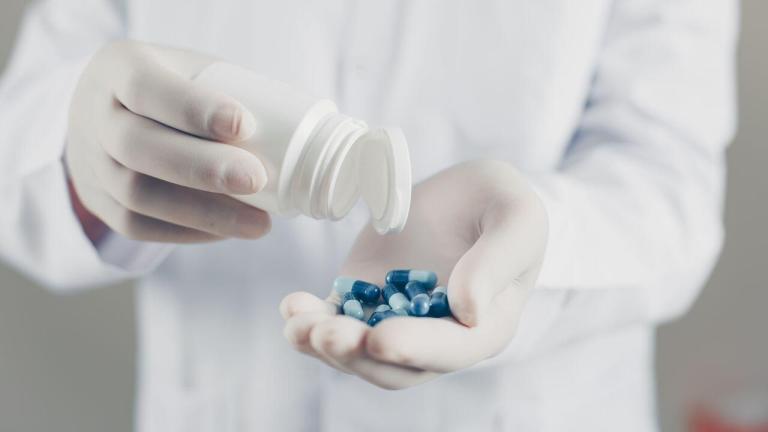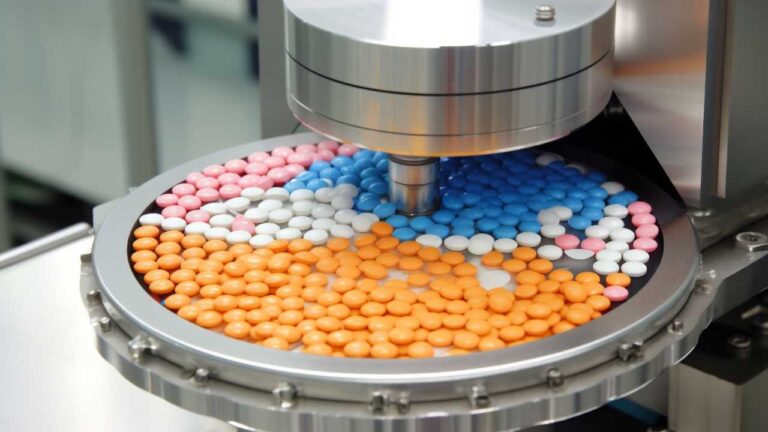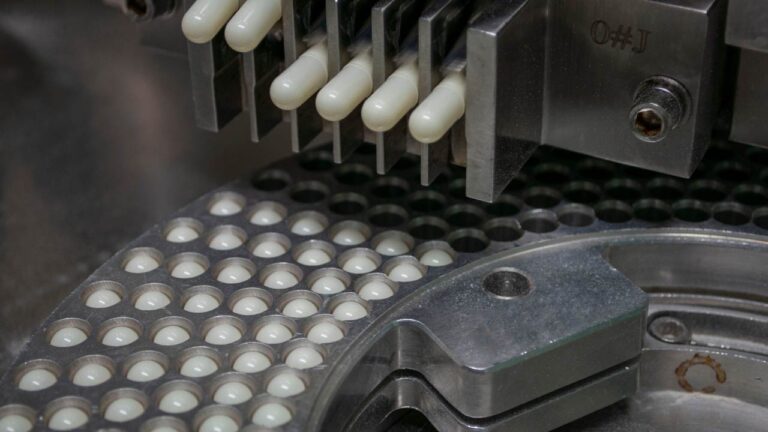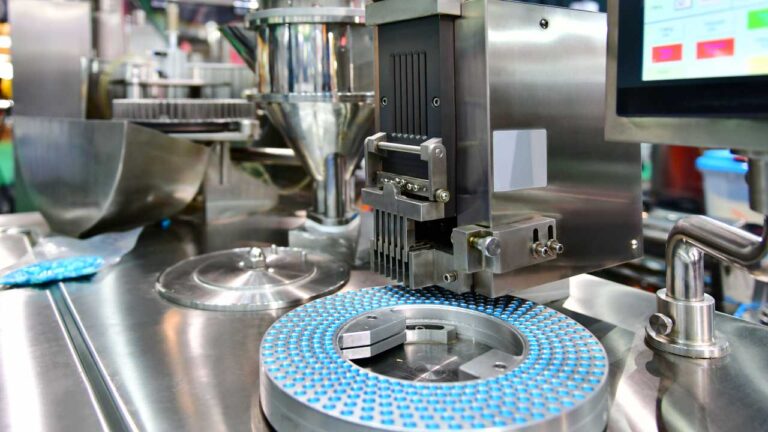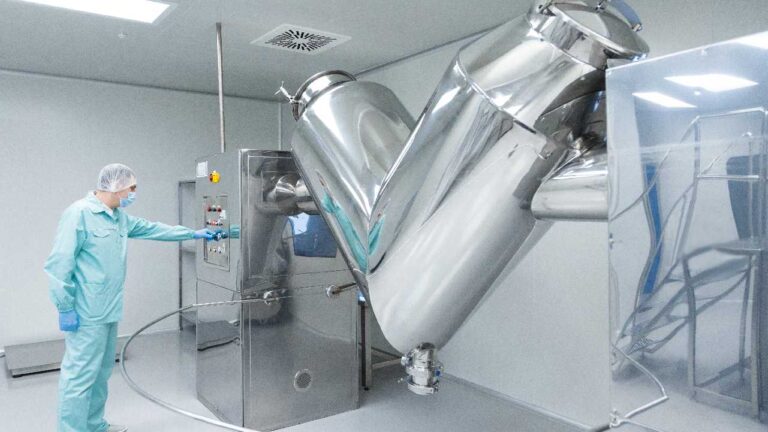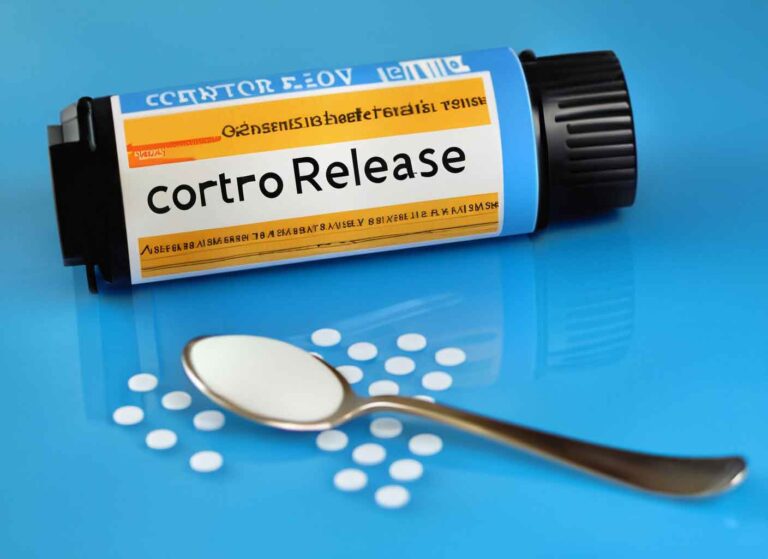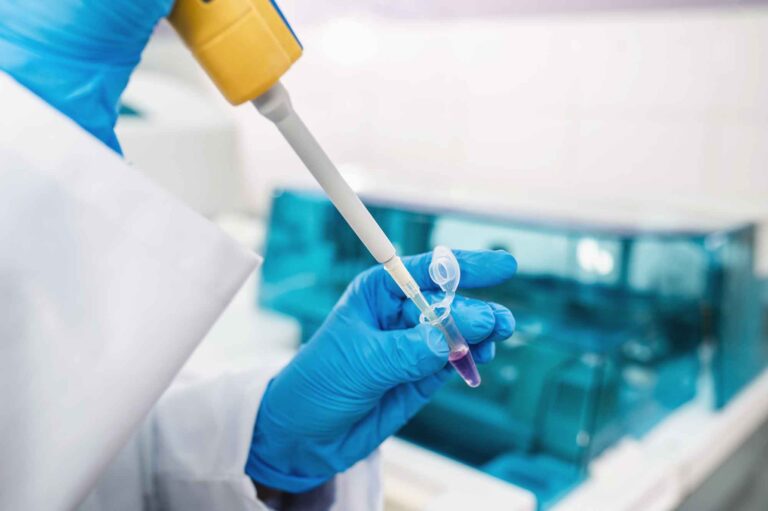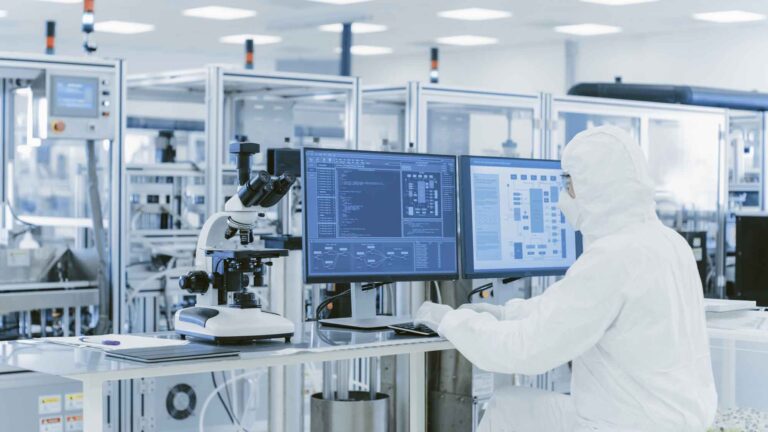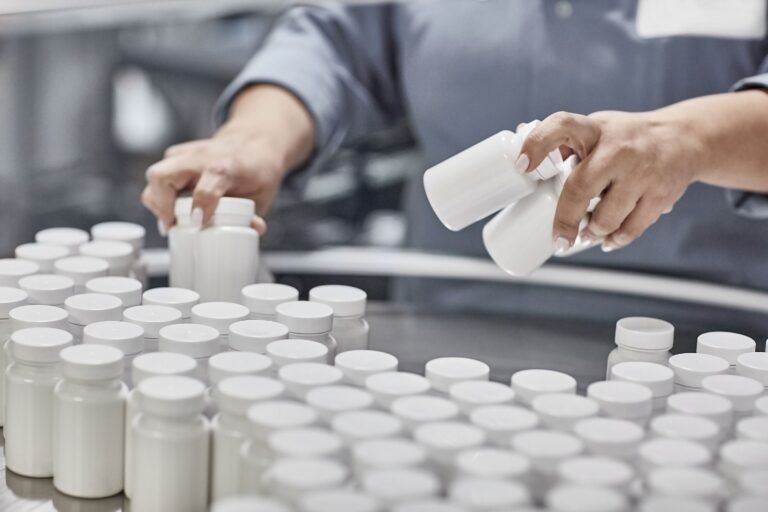Navigating Early-Phase Challenges
Preclinical manufacturing activities encompass drug substances and drug product synthesis, analysis, testing, solubility, stability and safety, before reaching the patient. These services are designed to produce drug products suitable for in vitro (test tube or laboratory) and in vivo (within a living organism) testing. They help in identifying a lead drug product formulation and scaling up for manufacturing of GLP test articles, with appropriate quality assurance oversight to ensure all regulatory requirements are met.
Pre-clinical manufacturing is essential for progressing a drug from the concept stage to being ready for clinical trials in humans. It’s a complex process that includes drug formulation development, manufacturing process development, scale-up, process validation, and quality control
At Hycon, we recognize these unique hurdles. Our approach is tailored to effectively navigate the complex regulatory landscape, ensuring the meticulous design, development, and collection of high-quality data essential for an Investigational New Drug (IND) submission.
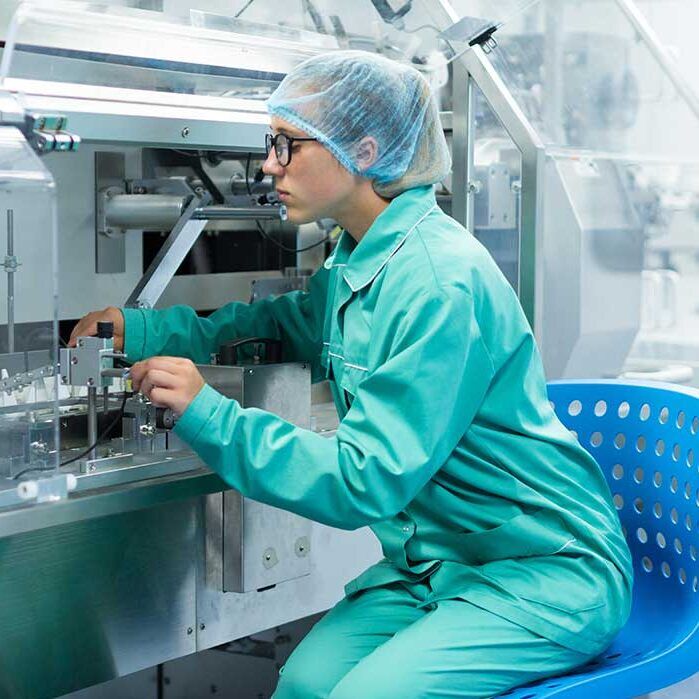
Preclinical Studies
Preclinical development is a critical stage in the drug discovery process, where the primary goal is to gather substantial evidence through various studies to justify the progression of a drug candidate into human clinical trials. This phase involves a series of methodical experiments and analyses, primarily focusing on in vitro (cellular level) and in vivo (animal level) studies, to evaluate the drug’s safety, efficacy, and pharmacological profile.
In Vitro Studies (Cell Cultures)
At the cellular level, in vitro studies are conducted to understand the drug’s interaction with cells, which is fundamental for predicting how it might behave in a human body. These studies serve multiple purposes:
- Mechanism of Action: By examining how a drug affects cellular processes, researchers can deduce its mechanism of action, which is vital for further development and clinical trial design.
- Target Identification: Identifying the cellular receptors or enzymes that the drug targets helps in understanding its potential therapeutic effects and side effects.
- Safety Assessments: Early detection of any cytotoxic effects, which could harm cells, is crucial for determining the drug’s safety profile.
- Adverse Effects: Monitoring changes in cell behavior and function can provide early warnings of potential adverse effects in humans.
In Vitro Studies (Organoids)
The use of organoids, which are three-dimensional cell cultures that simulate the structure and function of real organs, represents a significant advancement in in vitro research. These mini-organs offer several advantages:
- Physiological Relevance: Organoids more closely mimic the complexity of human tissues compared to traditional two-dimensional cell cultures, providing a more accurate model for drug testing.
- Disease Modeling: They enable researchers to study disease mechanisms and test drug responses in a controlled environment, which is especially useful for diseases that are difficult to replicate in animal models.
- Personalized Medicine: Organoids can be created from a patient’s own cells, allowing for individualized testing of drug responses.
- Toxicology Testing: They offer an alternative to animal testing for assessing drug safety, with the potential to observe direct effects on tissue structures that resemble human organs.
In Vivo Studies (Animal Models)
In vivo studies involve the use of animal models to simulate the drug’s effects within a living organism, providing insights that cannot be obtained from in vitro methods alone. These studies are essential for evaluating:
- Pharmacokinetics (ADME): This encompasses the drug’s absorption, distribution, metabolism, and excretion, which are key to understanding its bioavailability and potential interactions.
- Absorption: The process by which the drug enters the bloodstream and reaches the site of action.
- Distribution: The spread of the drug throughout the body’s fluids and tissues.
- Metabolism: The conversion of the drug into metabolites, primarily in the liver.
- Excretion: The removal of the drug and its metabolites from the body.
- Pharmacodynamics: The study of the drug’s biological and physiological effects on the body, which contributes to its therapeutic efficacy.
- Toxicology: The assessment of potential harmful effects on various organ systems, which is a vital part of safety evaluations.
Integration of Preclinical Data
Combining data from both in vitro and in vivo studies is crucial for making informed decisions about whether a drug should enter human trials. This integrated dataset must demonstrate a balance between efficacy and safety, providing a scientific rationale for the drug’s potential benefits to humans.
Challenges and Future Directions
The translation of preclinical findings to clinical outcomes is complex due to the inherent differences between animal models and human biology. The development of more sophisticated in vitro models, such as organoids, and computational modeling techniques are ongoing efforts to improve the predictability and efficiency of drug development.
In summary, preclinical development is a multifaceted and evolving field that lays the groundwork for the safety and efficacy of new therapeutic agents, ultimately influencing their potential to address unmet medical needs and improve patient care.
The Role of ADME in Preclinical Research
Absorption: Absorption is the process by which drug molecules move from the site of administration into the bloodstream. This process is influenced by the drug’s physicochemical properties, formulation, and the route of administration:
- Physicochemical Properties: The chemical structure of a drug determines its solubility and, consequently, its ability to be absorbed. Drugs that are more lipid-soluble can easily pass through cell membranes, while water-soluble drugs may require transport proteins or other mechanisms.
- Formulation and Drug Release: The formulation of a drug, such as tablets, capsules, or liquid solutions, affects its dissolution rate and, therefore, its absorption. Extended-release formulations are designed to release the drug slowly over time, while immediate-release formulations allow for rapid drug absorption.
- First-Pass Effect: Orally administered drugs must pass through the liver before reaching systemic circulation. The liver can metabolize a significant portion of the drug, reducing its bioavailability. This is known as the first-pass effect.
Distribution: After absorption, the drug is distributed to various tissues and organs. The distribution is not uniform and is influenced by several factors:
- Blood Flow to Tissues: Organs with a higher blood flow, such as the liver, kidneys, and brain, receive more of the drug than those with less blood flow.
- Volume of Distribution (Vd): This is a theoretical volume that a drug would occupy if it were uniformly distributed throughout the body at the same concentration as in the blood. A high Vd indicates extensive distribution into tissues, while a low Vd suggests that the drug remains primarily in the bloodstream.
- Tissue Binding: Some drugs may bind to tissue components, affecting their distribution. For example, drugs that bind extensively to muscle tissue may have a different distribution profile in athletes with more muscle mass.
Metabolism: Metabolism is the body’s way of converting drugs into more water-soluble compounds that can be excreted. The liver is the primary site for drug metabolism, but other tissues such as the intestines, lungs, and kidneys also contribute:
- Phase I Reactions: These reactions involve the modification of the drug molecule, often through oxidation, reduction, or hydrolysis. Cytochrome P450 enzymes play a significant role in these reactions.
- Phase II Reactions: These reactions involve conjugation, where the drug or its metabolites from Phase I are linked to another substance, such as glucuronic acid, making them more water-soluble and easier to excrete.
- Genetic Variability: Individual genetic differences can affect drug metabolism rates. Some people may metabolize drugs very quickly, while others do so more slowly, which can impact the drug’s efficacy and the risk of side effects.
Excretion: Excretion is the process by which drugs and their metabolites are eliminated from the body. The kidneys play a major role in this process, but other routes also contribute:
- Renal Excretion: The kidneys filter blood and remove waste products, including drugs and their metabolites. Factors such as glomerular filtration rate (GFR) and tubular secretion and reabsorption can affect drug excretion.
- Non-Renal Routes: Drugs can also be excreted through bile, feces, sweat, and exhaled air. For example, volatile drugs can be eliminated via the lungs, while drugs that undergo enterohepatic recirculation may be excreted and reabsorbed multiple times before final elimination.
- Drug Elimination Half-Life: This is the time it takes for the plasma concentration of a drug to reduce by half. It is a critical factor in determining the dosing frequency and duration of a drug’s action.
Preclinical Toxicology Testing
Toxicity studies are an integral part of the safety evaluation for new substances, including pharmaceuticals, chemicals, and consumer products. These studies help determine the potential adverse effects these substances may have on humans and the environment. Below is an expanded overview of the various types of toxicity studies:
Acute Toxicity Studies
Acute toxicity studies aim to identify the immediate harmful effects of a substance after a short-term exposure. The primary objectives of these studies include:
- Assessing Immediate Adverse Effects: Researchers observe the immediate biological responses of test subjects (usually animals) to a substance. This can include symptoms like lethargy, changes in feeding habits, and even mortality.
- Determining the Maximum Tolerated Dose (MTD): The MTD is the highest dose of a substance that can be administered without causing severe toxicity or death. It’s a crucial metric for establishing safe dosage levels for further testing and human use.
Chronic Toxicity Studies
Chronic toxicity studies are conducted over a longer period, ranging from weeks to months, to evaluate the cumulative effects of a substance. These studies are vital for:
- Evaluating Cumulative Effects: By administering repeated doses over time, researchers can observe the long-term impacts on health, including chronic diseases and conditions that may develop.
- Observing Organ-Specific Toxicity: These studies help identify if a substance has a toxic effect on specific organs, such as the liver, kidneys, or heart.
- Potential Carcinogenicity: Chronic studies may reveal whether a substance has the potential to cause cancer after prolonged exposure.
Specialized Toxicity Assessments
In addition to general acute and chronic toxicity studies, specialized assessments focus on particular risks associated with substances:
- Carcinogenicity Studies: These studies are designed to uncover any cancer risks associated with a substance. They typically involve long-term exposure and observation for the development of tumors or other cancerous changes.
- Mutagenicity Studies: These tests evaluate the potential of a substance to cause genetic damage, which is a critical concern for hereditary diseases and cancer.
- Reproductive Toxicity Studies: These studies assess the impact of a substance on fertility and fetal development, which is essential for understanding potential risks during pregnancy and to offspring.
Each type of toxicity study requires a carefully designed experimental approach, tailored to the specific endpoints being evaluated. For instance, carcinogenicity studies may involve lifetime exposure of test animals, while mutagenicity studies might use bacterial cultures to assess DNA damage potential.
Overall, toxicity studies form the backbone of risk assessment processes for substances intended for human use. They provide critical data that regulatory agencies use to make informed decisions about the safety and approval of these substances. The design and conduct of these studies are governed by ethical considerations, scientific rigor, and regulatory guidelines to ensure the reliability and relevance of the data for human health risk assessment.
Custom Synthesis of Active Pharmaceutical Ingredients (APIs) for Preclinical Applications
Our team of material scientists and chemists work with our supply chain and vendors to custom synthesize your Active Pharmaceutical Ingredients (APIs) for preclinical applications. This is a critical aspect of our services, as the API is the core component of any drug, responsible for its therapeutic effects.
Tailored Solutions: We understand that every drug is unique, and so are its requirements. Our team of expert chemists can design and synthesize APIs according to the specific needs of your drug development project.
Advanced Techniques: We employ state-of-the-art techniques and methodologies for API synthesis. This includes both traditional and innovative approaches, ensuring we can handle complex chemical structures and challenging synthesis routes.
Quality and Compliance: All our APIs are synthesized following stringent quality control standards. We adhere to all relevant regulatory guidelines to ensure the safety, purity, and efficacy of the synthesized APIs.
Scalability: Our custom API synthesis services are designed to scale. Whether you need small quantities for early preclinical testing or larger amounts for later stages, we can accommodate your needs.
Collaborative Approach: We work closely with our clients throughout the API synthesis process. This collaborative approach ensures that the final product aligns perfectly with your preclinical requirements.
Early Development:
- Objective: Pre-clinical manufacturing occurs during the early stages of drug development. It’s the incubation period where ideas transform into tangible formulations.
- Laboratory Exploration: Scientists create drug products that exist initially only in the laboratory. These prototypes hold immense promise.
- Safety and Efficacy: The focus is on safety, efficacy, and feasibility. Can this formulation become a life-changing therapy?
Manufacturing Considerations
Formulation Optimization:
The art of drug formulation is a sophisticated process that combines scientific knowledge with innovative techniques to create effective and safe medications. The development of formulation prototypes is a critical step in this process. It involves a series of iterative experiments where scientists adjust the composition and ratios of active pharmaceutical ingredients (APIs) and excipients to achieve the desired therapeutic effect and stability. This stage is not only about combining ingredients but also about understanding the interactions between them and how they affect the drug’s performance and patient experience.
During the preclinical stage, the focus is on establishing the most suitable dosage forms. Whether it’s tablets that release the drug slowly over time or injections that deliver a quick dose, each form is designed with the patient’s needs in mind. Researchers must consider factors such as bioavailability, which is how quickly and efficiently the drug can be absorbed by the body. They also conduct extensive stability studies to determine how long the drug can be stored without losing its efficacy, which is crucial for ensuring that patients receive medicine that is both safe and effective.
Scalability:
When a drug shows promise in preclinical trials, the next challenge is scalability—the ability to produce the drug on a mass scale without sacrificing quality. This is a complex task that often requires reformulating the drug to suit large-scale manufacturing processes. The transition from laboratory to full-scale production can reveal new challenges, such as ensuring uniformity across large batches or sourcing high-quality raw materials in bulk. Companies must navigate these issues while maintaining strict adherence to regulatory standards.
Quality Assurance:
Quality assurance (QA) is the cornerstone of pharmaceutical manufacturing. It’s an all-encompassing approach that ensures every aspect of the production process, from the sourcing of raw materials to the packaging of the final product, meets the highest standards. QA teams implement rigorous testing protocols to detect any deviations from the established criteria. They also monitor the manufacturing environment to prevent contamination and ensure that the facility operates in compliance with Good Manufacturing Practices (GMP). These practices are not static; they evolve with advancements in technology and changes in regulatory requirements, demanding continuous improvement from the QA teams.





